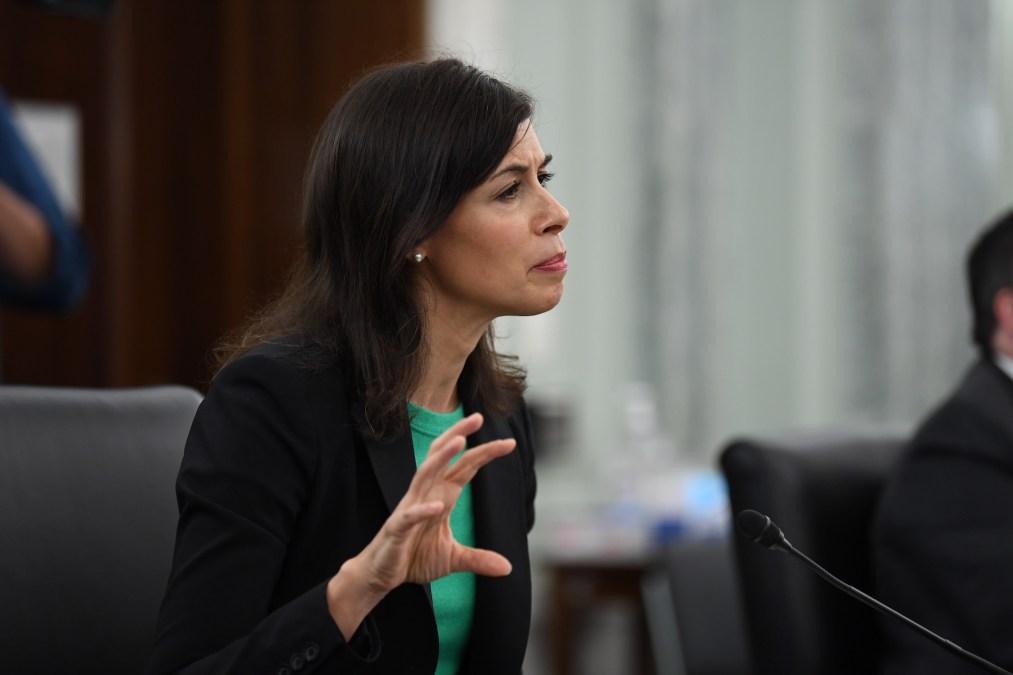FCC hits operative behind New Hampshire robocall with $6 million fine

The Federal Communications Commission on Thursday finalized a $6 million fine against the Democratic operative behind the January robocall in New Hampshire that used AI to imitate President Joe Biden’s voice and urge voters to stay away from the polls.
Steve Kramer, who used deepfake, AI-generated voice cloning technology and caller ID spoofing to facilitate the fake Biden call, will have 30 days to pay the fine following the FCC’s vote during its September open commission meeting. The Department of Justice will be enlisted for collection if Kramer fails to pay within that 30-day window.
“Let me be very clear: if you flood our phones with this junk, we will find you and you will pay,” FCC Chairwoman Jessica Rosenworcel said. “And it is not just this agency you will need to worry about. The New Hampshire Attorney General is prosecuting Steve Kramer for voter suppression and impersonation of a candidate, and we are committed to helping our colleagues in the state every step of the way.”
Raul Rojo, attorney advisor in the Enforcement Bureau’s Telecommunications Consumers Division, said the FCC arrived at the $6 million figure in its notice of apparent liability by assessing a base forfeiture of $1,000 per each of Kramer’s 3,000 spoofed calls. The bureau then applied “an additional 100% upward adjustment for egregiousness,” Rojo said. “Steve Kramer did not respond to the NAL. As such, we see no reason to cancel, withdraw or reduce the proposed penalty.”
Kramer, who was working as a paid consultant for the presidential campaign of Rep. Dean Phillips, D-Minn., defended his actions in an April interview with CyberScoop, saying that the call — which spoofed the phone number of former New Hampshire Democratic official Kathy Sullivan — raised national awareness about the dangers of AI-generated deepfakes.
“I can’t name any other campaign or any other event that’s happened for $500 that got the [same] type of regulation change, exposure about the issue as well as the ability for legislators to finally be able to talk about it in their state legislatures,” Kramer told CyberScoop.
Loyaan A. Egal, chief of the FCC’s Enforcement Bureau and chair of the Privacy and Data Protection Task Force, scoffed at Kramer’s assertion during Thursday’s meeting.
“Kramer has claimed he made the calls to raise awareness of the dangers of AI while espousing deceptive and self-serving rhetoric,” Egal said. “Kramer sought to lie to New Hampshire voters about everything, from whose voice was on the message to whose number was dialing them. The New Hampshire political operative and the New Hampshire primary voters were carefully and deliberately chosen targets and victims of Kramer’s scheme.”
The FCC’s fine of Kramer — who faces 13 felony and 13 misdemeanor counts in New Hampshire — comes after the agency last month reached a $1 million settlement with Lingo Telecom, the Texas-based voice service provider that sent the robocalls.
Rosenworcel said the FCC will continue its push to increase transparency around the use of AI in calls and texts, citing a recent rule requiring callers to disclose up front their use of AI to generate calls and texts and a proposal for local, state and issue campaigns to do the same when AI is used in their radio and television ads.
Those actions, Rosenworcel said, are “building on disclosure practices we have had at this agency for decades. Because as these tools become more accessible, every one of us has a right to know if they are being used.”






